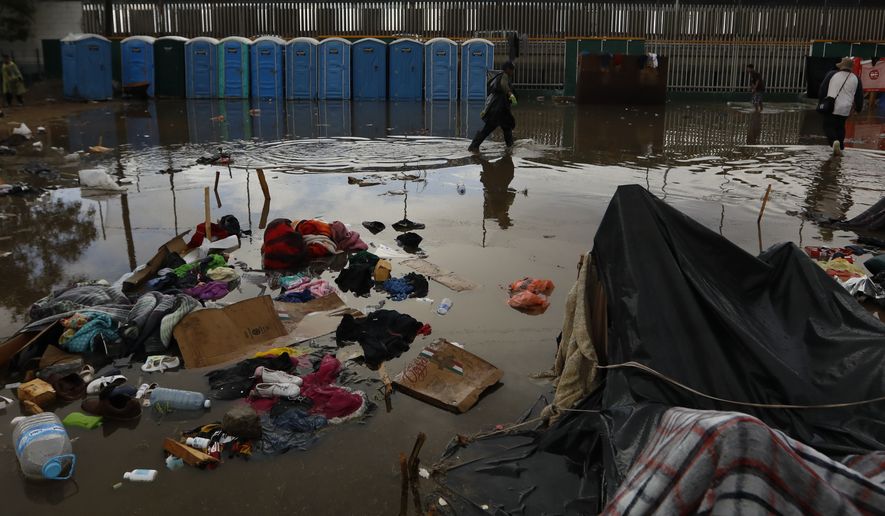OPINION:
Democrats like to swoon over the sad plights of the suffering masses making their way to America’s border right now, saying the poor people of points south are simply trying to do right by their families: find suitable jobs and safe homes and so on.
That’s easy to do from the safe distance of Washington, D.C., and that leaves them blind — not to mention immune — to the diseases of these migrants, to the health problems of these wanna-be immigrants.
Of 6,000 currently sleeping in the city of Tijuana, a third are reportedly being treated for various medical issues. And not just coughs due to cold.
As Fox News reported, according to Tijuana’s Health Department, these medical issues include tuberculosis, HIV and AIDS, chickenpox, lice and skin infections, Hepatitis — and who knows what else.
It’s the whispered dark side of unchecked borders. The Democrats don’t want to discuss this, but open borders don’t just bring in unknown national security risks. They bring germs and diseases and health conditions that can infect and afflict the citizenry.
Look at these headlines.
“CDC warns of new tick species capable of spreading diseases to humans,” The Hill newspaper wrote, just this week, about a new report that finds “the Asian longhorned tick, an arachnid native to Korea and other parts of east Asia, has been found in several states in the eastern and southeastern parts of the United States.”
New Jersey reported the first sighting of the tick last year. It’s since spread to eight states.
How’d it get here? Somehow, somewhere, it crossed the border.
“CDC identifies 31 states with 116 confirmed cases of polio-like disease,” Fox2Now.com reported.
The story went on to report “most of the children with confirmed cases experienced a viral illness with symptoms including fever and cough about three to 10 days before the onset of paralysis.”
Where’s it coming from?
Nobody knows, nobody says. It’s impolite to suggest immigrants could be the carriers — but since nobody knows, factually speaking, that makes it a possibility. And that possibility makes the need for border controls all the more necessary.
“There have now been 106 confirmed cases of [acute flaccid myelitis] in 29 states this year,” WHNT.com reported, just a this week. “[That’s] an increase of 16 since last week. Three cases of AFM have been confirmed in Alabama. … Since 2014, there have been 430 confirmed cases of the rare disease, and 90% have been children, according to the CDC.”
Open-border advocates like to scoff at the idea of tightening borders based on medical necessities.
They like to talk about these migrants currently making their ways into America as if they’re simply poor souls, trying to better themselves, and those who dare to ask about diseases are fear-mongering racists, hate-filled and isolationist to the core. Well, those seeking to come to this country may indeed be poor souls. They may be worthy of aid and assistance and basic human necessities and Christian compassion and a whole host of other things the open border types could list.
But the fact is, so are the citizens of America. So are the children of America whom leftists so like to say they always support.
Fearing the unknown of what some might carry across the border is neither irrational nor unjustified.
Think about it. If you’re an American parent whose child has just fallen and can’t get up because of polio-like paralysis, and the federal health authorities in charge of determining the source of this strange and mysterious polio-like — incurable, unstoppable by vaccine — disease collectively toss their hands in the air and shrug shoulders, you’re dang right there’s a fear.
There’s a real yearning, a real hunkering for answers.
There’s a real tendency, among the sensible-minded, that is, to look at the condition of the borders, assess the numbers of known diseases from migrants, and wonder: Why take the risk?
That’s not racist. That’s common sense.
Pay attention to those who scream the loudest against such questioning, though. They’re very often the ones who are most removed from any of these risks at all.
• Cheryl Chumley can be reached at cchumley@washingtontimes.com or on Twitter, @ckchumley.




Please read our comment policy before commenting.